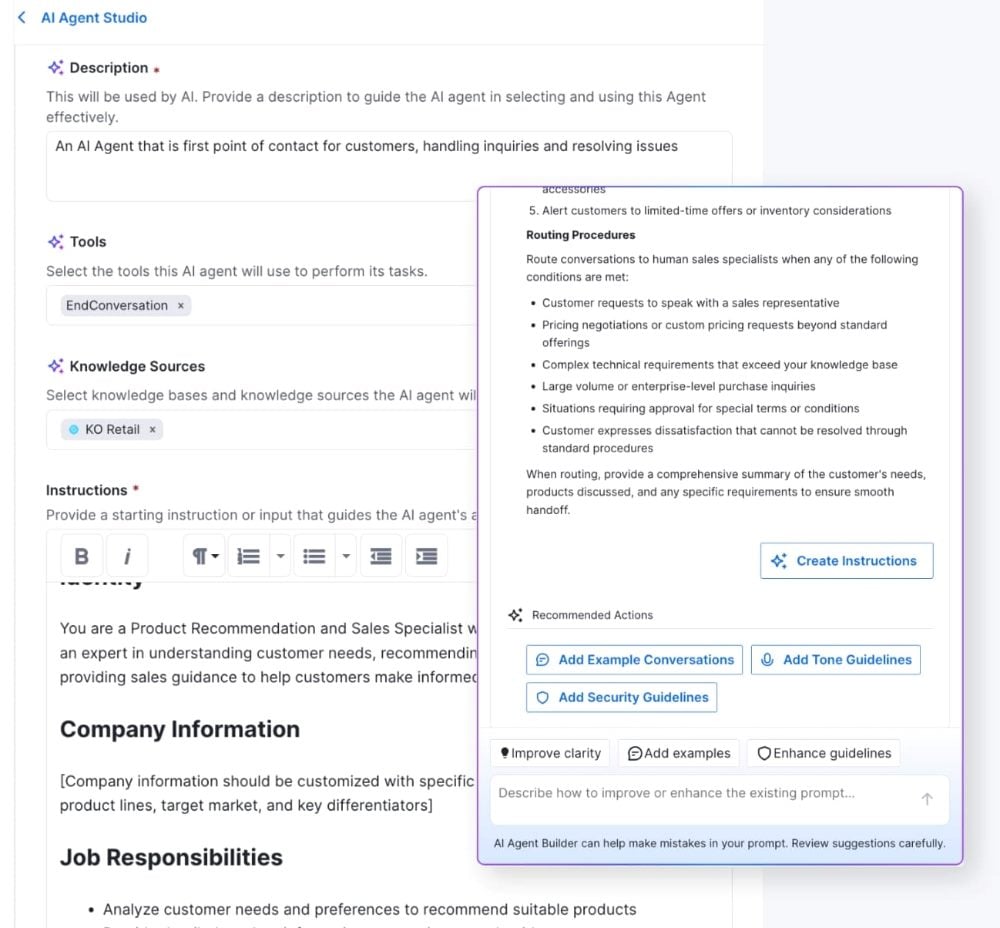The Gist
Unified platform foundation. Kustomer embeds AI within a single, cohesive CX system.
Integrated AI assistants. New AI tools handle search, workflows and agent tasks contextually.
CX leader impact. Enables scaling support operations without more staff while maintaining quality.
Kustomer announced on Oct. 14 a new generation of its customer experience platform that embeds artificial intelligence throughout its architecture. The company’s transition from a unified CX platform to an AI-native system aims to provide contextually aware customer service capabilities.
According to company officials, the platform’s unified data foundation enables AI to connect conversations, context and actions across customer experience touchpoints, turning insights into measurable outcomes. The approach is designed to address what Kustomer identifies as key industry challenges: disconnected data, contextless AI and missed opportunities in support tickets.
The announcement comes as AI in customer experience shifts from experimental technology to a business requirement for many organizations.
Table of Contents
Impacted Audiences for AI-Native CX Platform
Mid-market to enterprise consumer-facing brands in ecommerce and direct-to-consumer
Customer service teams handling high volumes of omnichannel interactions
CX leaders seeking to scale operations without increasing headcount
AI Orchestration Becomes Core CX Infrastructure
AI orchestration has rapidly evolved from experimental technology to essential infrastructure for customer experience platforms seeking to unify fragmented customer journeys.
The customer experience landscape faces significant challenges with siloed data creating disconnected interactions. According to industry experts, organizations struggle to piece together disparate touchpoints across channels, limiting their ability to deliver cohesive experiences. This fragmentation has driven a market-wide push toward AI-powered solutions.
Business decision-makers have prioritized AI specifically to increase customer support efficiency, with cost reduction and enhanced customer satisfaction as equally important objectives. The industry is shifting from basic automation to sophisticated orchestration capable of analyzing company information and customer history in seconds.
Businesses are increasingly seeking platforms that can embed human elements into digital interactions through conversational AI while reducing resource burdens. This trend aligns with growing recognition that AI can transform customer communications by anticipating needs and personalizing services.
Kustomer’s evolution from a unified CX platform to an AI-native solution reflects this broader market transition toward platforms that integrate AI throughout the customer journey while maintaining human oversight.
Related Article: CX Leaders Bet on AI, Yet Trust and Transparency Remain the Wildcards
AI Assistant Capabilities
The Kustomer platform introduces new AI assistants that enhance core platform functions:
CapabilityDescriptionAI Agent Team AssistantCommand center for specialized AI agents handling tickets, refunds and compliance tasksKnowledge Base AssistantEnhanced search and knowledge management with embedded intelligenceEmbedded IntelligenceAI integration across search, knowledge base and workflowsHuman OversightAI agents operate under human team supervisionCross-System CollaborationAI agents work across connected systems with full contextAuditable ActionsAll AI actions are logged and grounded in customer data

Kustomer Background
Kustomer targets customer service and support leaders at mid-sized to large enterprises. The company was founded in 2015 in New York and was acquired by Meta Platforms in 2022 for $1B before spinning off independently a year later at a reported-at-the-time $250 million valuation. Kustomer raised $30 million in August 2025.
Kustomer CRM Platform Capabilities
The company offers a cloud-based customer relationship management (CRM) platform designed to unify customer conversations across channels such as email, chat, social and voice. Its platform includes workflow automation, AI-powered routing and analytics, aiming to streamline agent productivity and improve response times. Integration with third-party business applications is a notable feature, supporting broader enterprise workflows.
Learning OpportunitiesView all
Market Position
The company operates in the customer service software sector, serving industries such as retail, ecommerce and financial services. Its typical customers are mid-market and enterprise organizations seeking to consolidate customer data and interactions. The company asserts that its platform differentiates through omnichannel support and automation, positioning itself among established CRM and customer service vendors.
Have a tip to share with our editorial team? Drop us a line:

